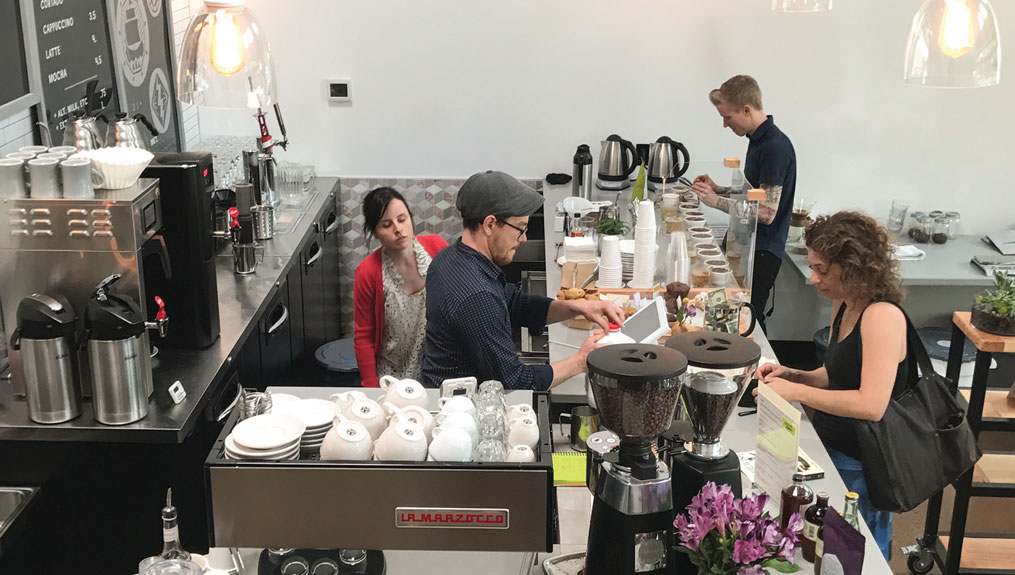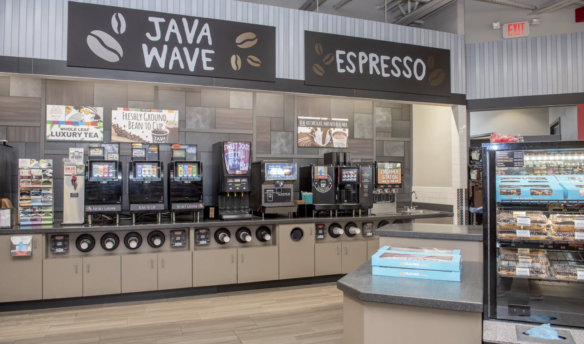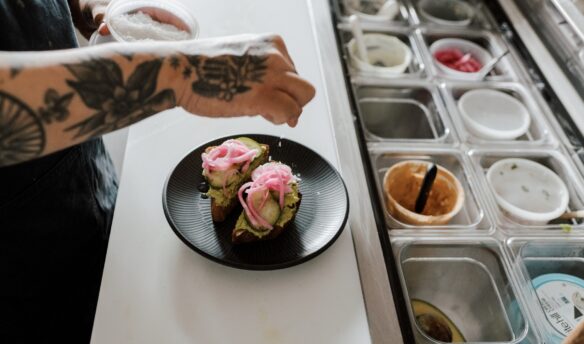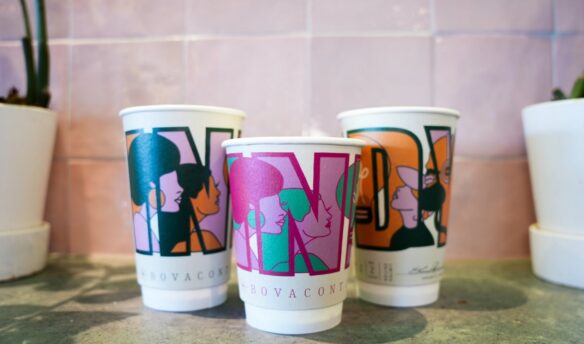Guilder in NE Portland.
“AskMeAboutCostofProduction,” while it might be a mouthful to say and easy to misspell, is the Wi-Fi password at Guilder in NE Portland, Oregon. Baristas have to answer with this every time a customer comes up with device in hand ask. The funny thing is, as Mike Nelson, co-owner of Guilder and Junior’s Roasted Coffee, points out, is that the password became a great way to pique consumers’ own interest in learning about the real costs associated with their morning latte.
This anecdote was the introduction for an event with the same title, “Ask Me About the Cost of Production,” held on Tuesday, November 27, at the Buckman Coffee Factory in Portland, Oregon. The evening’s hosts, Mike and Caryn Nelson of Junior’s and Guilder, went on to explain their own passion for economically and environmentally sustainable coffee production and how the evening’s special guest speaker, Chad Trewick, has been instrumental in their own journey to sustainable sourcing and fair prices.
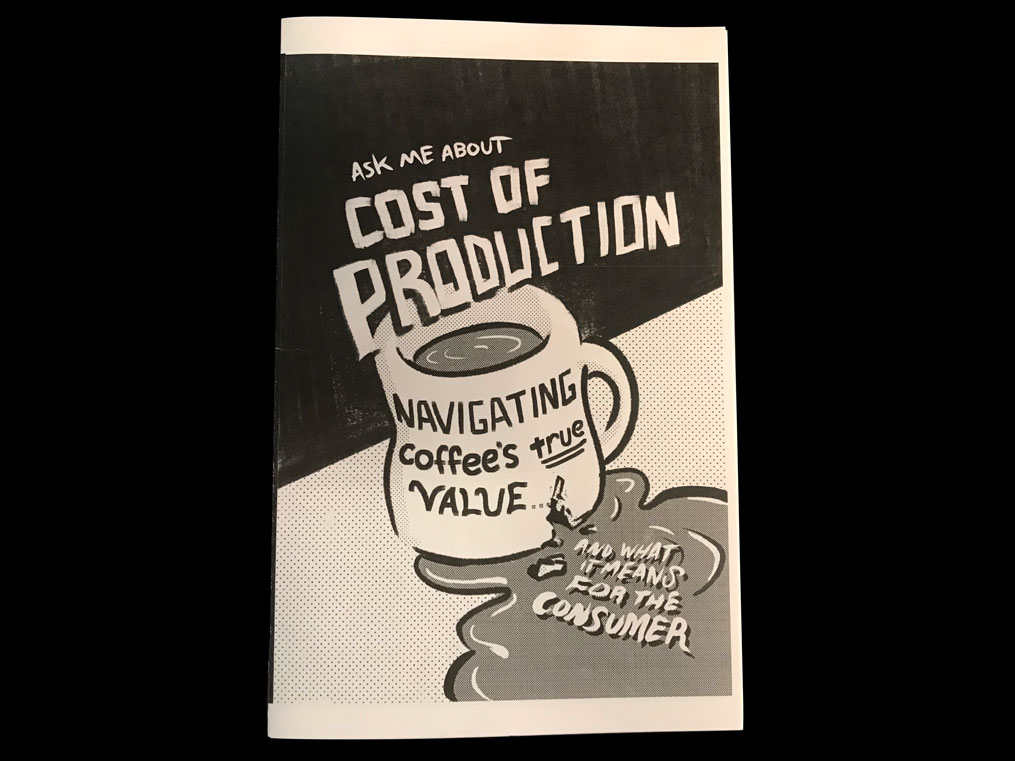
Trewick himself had spent 20 years sourcing and buying ever-increasing volumes of coffee as the senior director of Coffee & Tea for Caribou Coffee. After an epiphany that coffee prices stayed the same while the cost of goods in his life kept rising and farmers kept struggling more and more, Trewick made it his mission to sound the alarm bells that something was amiss in the coffee industry.
Trewick led the event’s 60+ attendees through a presentation that outlines how current rock bottom commercial prices, unaccounted-for production costs, and higher expectations about farming conditions have left many of today’s farmers destitute or completely out of business. He pointed out that these phenomena are a function of a well-operating capitalist system that leaves only the most efficient producers in the market. As a result, we are at a juncture in the coffee industry where the next generation of coffee producers are choosing to pursue other opportunities rather than continue the cycle of poverty by working their parent’s coffee farm. With the way things are headed, the industry is quickly losing an entire skilled labor force that it depends on.
At the end of the presentation, Trewick and the Nelsons invited attendees to participate in a “World Café” activity by dividing into groups and taking what they had just learned to brainstorm strategies that would make necessary changes to buying decisions for the longevity and equity of the industry. At the end of the activity, the participants gathered again to share what they had discussed. Mike encouraged guests in the room to keep having these discussions with the people in their own lives.
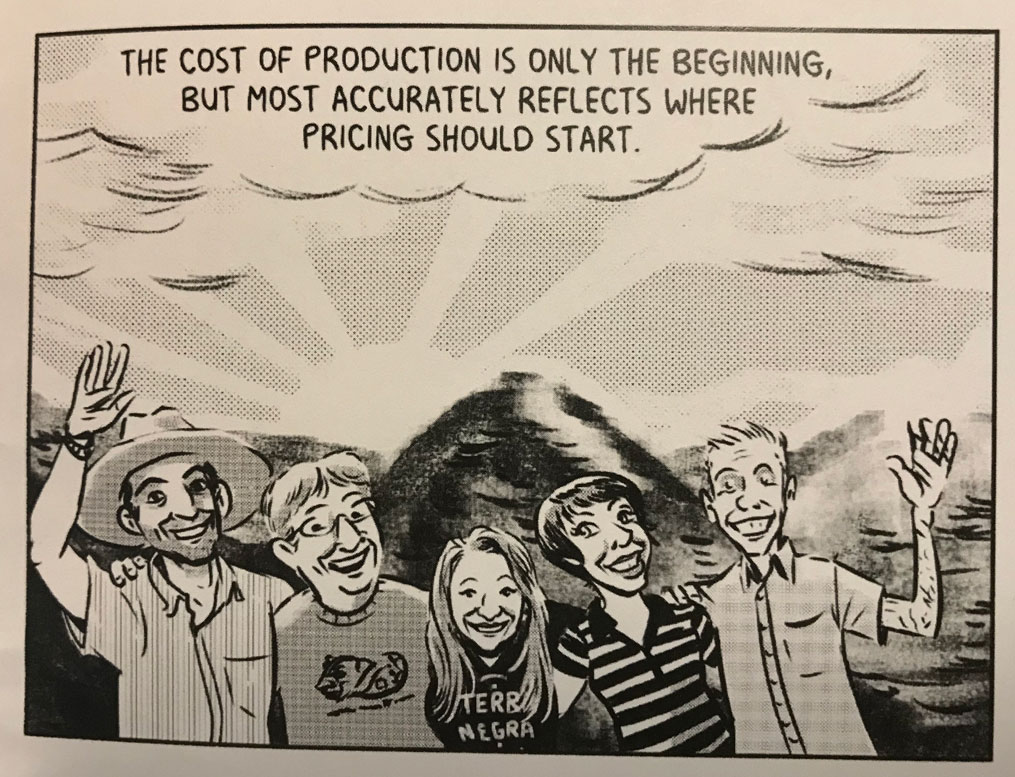
As part of the event, Junior’s has teamed up with farmers in Guatemala to release their own transparency reports detailing production and roastery costs and pricing breakdowns. The goal being that a shared dedication to transparency will lead to accountability in sustainable economics in coffee.



